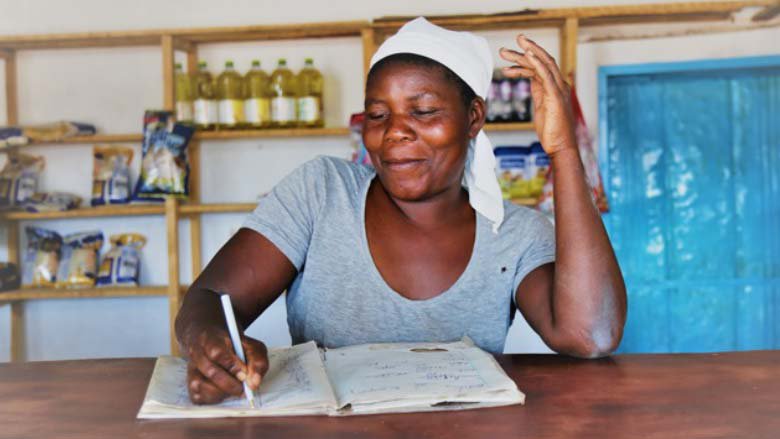Mavis��s household is among the beneficiaries of the $0.9 million project, which began in December 2021 and ended in September 2022. The project sought to reduce the school dropout rate among adolescent girls resulting from the COVID-19 pandemic, by initiating complementary social protection and Water and Sanitary Health (WASH) interventions in Buhera, a district in eastern Zimbabwe��s Manicaland province.
Buhera is one of the poorest and most water-scarce districts in Zimbabwe, and thus easily affected by any increase in household poverty. The pandemic had added to the layered vulnerability of girls living in poverty there, given gender dynamics and the disproportionate impact it had on women and girls. Exceeding its target of 850 households, the pilot project assisted 1,077 households, each with an adolescent girl already registered in the BEAM program.
Beneficiaries received unconditional cash transfer payments of $210 over six months, an IGA grant payment of $250 (in two equal installments), and the delivery of a menstrual hygiene management kit, which included sanitary pads, underwear, masks, sanitizer, soap, and a towel. Chlorine tablets were also given out and sensitization and awareness-raising sessions held for students (boys and girls), parents or guardians, and teachers. These interventions were delivered at household and school levels to provide girls with comprehensive support.
With their IGA grants, adult beneficiaries embarked on different projects that include livestock rearing, poultry rearing, and farming. This includes two households coming together as a joint venture to plant an area of 1.6 hectares (almost 4 acres). For Catherine Mowu and Regina Zhizhombe, collaboration is their means to securing livelihoods for their families, and the joint venture a means to that end. ��We decided to partner and grow tomatoes for sale,�� they said. ��We realized that pooling our funds together would help us sustain our garden.�� The ladies are also in a village savings club, a community mechanism of a revolving fund that disburses loans from the proceeds of monthly subscriptions.
The freeing effects of access to menstrual pads
Seated under a tree in rural Buhera, four of the 14 beneficiaries at Zvomoyo Secondary School outline how menstrual pads have been a source of confidence for them. With their similar socio-economic backgrounds, the students easily relate as they narrate their experiences.
��Prior to receiving sanitary pads, we could easily miss school, as we struggled to stand up during lessons in fear that the fabrics we were using as sanitary towels would have spoilt our uniforms,�� said one secondary (high) school student. ��Additionally, we no longer have to forego school to work on farms with our parents, opting to make money to buy a bar of soap so that we could wash the fabrics we used during menstruation.��



